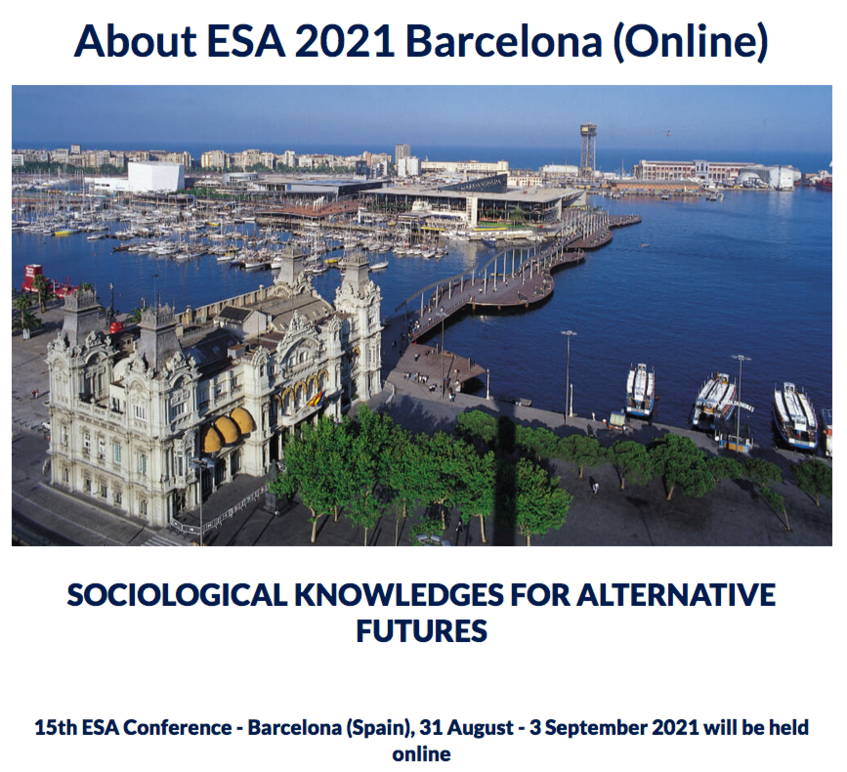European Sociological Conference 2021 Barcelona
Stefan Ossmann hat bei der 15. European Sociological Conference 2021 teilgenommen, die vom 31. August bis 3. September 2021 stattfand.
Im Rahmen der Konferenz hat er als Reviewer 21 Beiträge vorab begutachtet, einen Vortrag gehalten und ein Panel moderiert.
Der Vortrag fand im Rahmen des RN23 Sexuality Research Networks am 2. September 2021 statt und trug den Titel 'Love and life history in a polyamorous context'.
Ergänzend dazu hat er mit Prof. Dr.in Agnieszka Golczynska-Grondas vom RN03 Biographical Perspectives on European Societies im Vorfeld ein Joint Panel ausgeschrieben und die Beiträge ebenfalls am 2. September 2021 gemeinsam mit Agnieszka Golczynska-Grondas moderiert.
Folgend der Abstract des Beitrages:
'Who we are today and how we got there is determined by, amongst other things, how we live our relationships, intimacies and sexuality. From a scientific perspective, this not a brand-new new finding, sexual biographies have been subject of investigation. Yet, so far, some aspects have been falling short in academic discussion: Polyamory - understood as a consensual relationship between more than two people based on emotional love and intimate acts over a longer period of time (Ossmann, 2020) - has so far widely been overlooked with regards to the love and live history of involved people.
Financed by the Austrian Science Funds FWF, I have explored the self-perception of 33 people in 14 polycules that live a polyamorous life by the method of narrative biographical interviews (Schütze, 1983). The introductory question “What happened in your live that we now talk about polyamory?” led not only to a detailed description of experiences, it allowed furthermore the attempt of an empirically based type generation (Keller & Kluge, 2010). The result is a draft of poly (proto)-types specified by either intrinsic desire or choice, predominately based on key moments in emotional and intimate biographies that shape sexual identities. In detail, the intrinsic desire was furthermore split in sexual desires and ideological believes; while choice indicated differences regarding self-determination, external determination, or a consensual decision.
The findings can help to understand poly people better – if the model has its entitlement, which I would be happy to discuss with fellow researchers at the 2021 conference.'

Copyright: ESA
